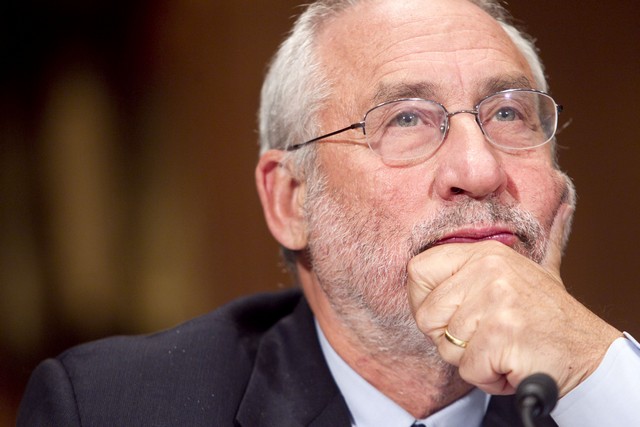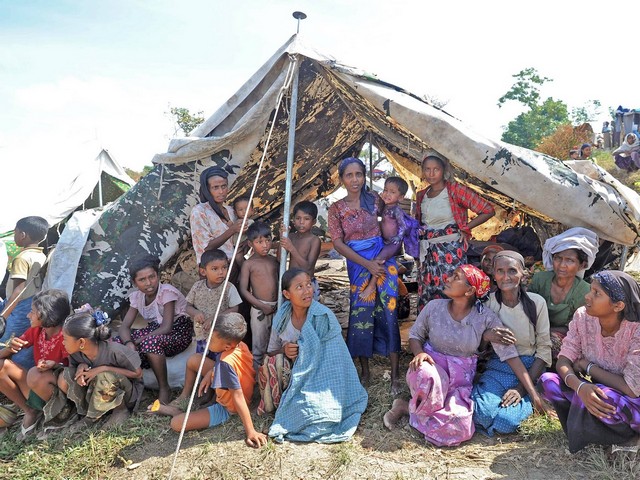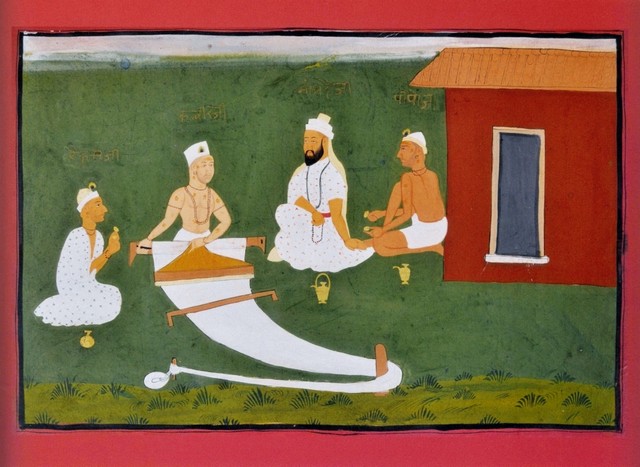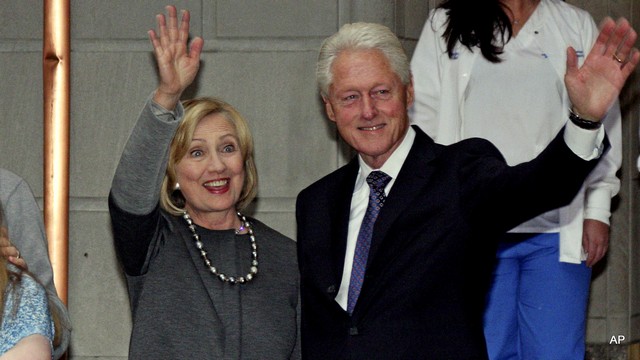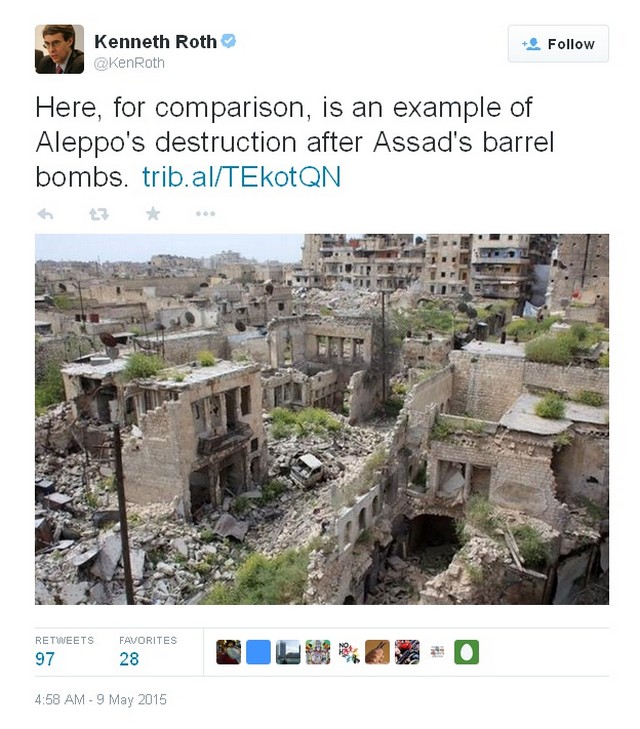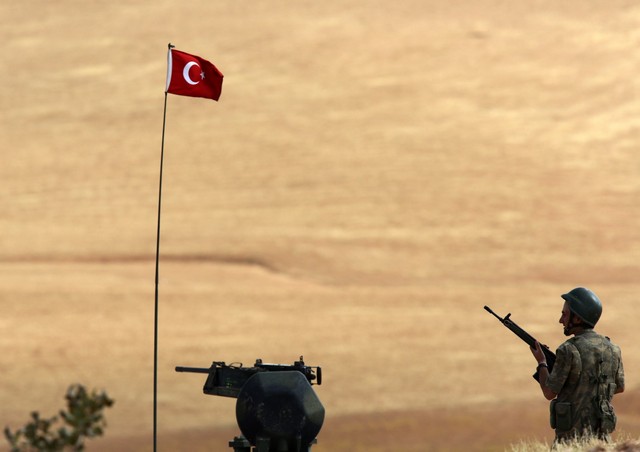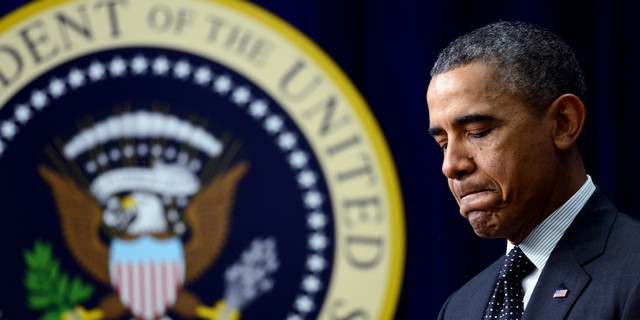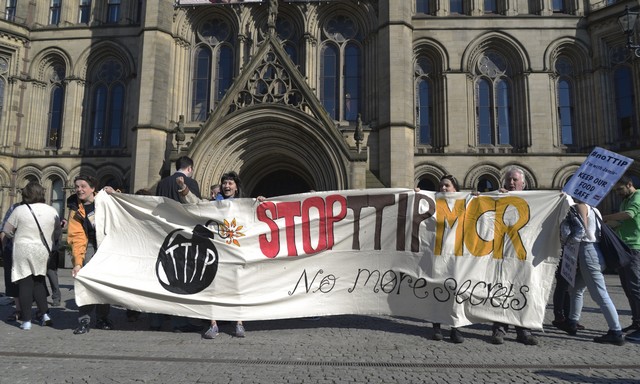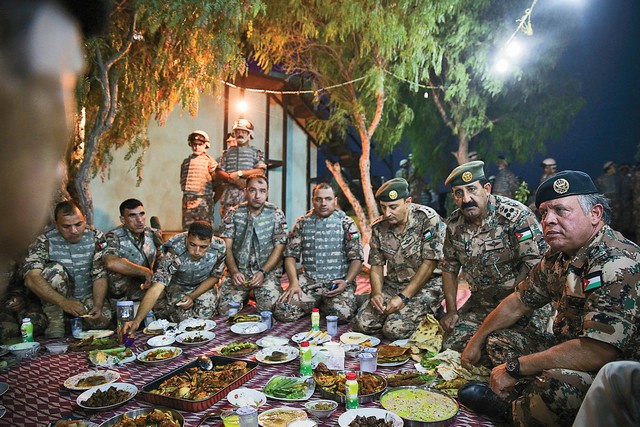By Nomi Prins
[This piece has been adapted and updated by Nomi Prins from chapters 18 and 19 of her book All the Presidents’ Bankers: The Hidden Alliances that Drive American Power, just out in paperback (Nation Books).]
The past, especially the political past, doesn’t just provide clues to the present. In the realm of the presidency and Wall Street, it provides an ongoing pathway for political-financial relationships and policies that remain a threat to the American economy going forward.
When Hillary Clinton video-announced her bid for the Oval Office, she claimed she wanted to be a “champion” for the American people. Since then, she has attempted to recast herself as a populist and distance herself from some of the policies of her husband. But Bill Clinton did not become president without sharing the friendships, associations, and ideologies of the elite banking sect, nor will Hillary Clinton. Such relationships run too deep and are too longstanding.
To grasp the dangers that the Big Six banks (JPMorgan Chase, Citigroup, Bank of America, Wells Fargo, Goldman Sachs, and Morgan Stanley) presently pose to the financial stability of our nation and the world, you need to understand their history in Washington, starting with the Clinton years of the 1990s. Alliances established then (not exclusively with Democrats, since bankers are bipartisan by nature) enabled these firms to become as politically powerful as they are today and to exert that power over an unprecedented amount of capital. Rest assured of one thing: their past and present CEOs will prove as critical in backing a Hillary Clinton presidency as they were in enabling her husband’s years in office.
In return, today’s titans of finance and their hordes of lobbyists, more than half of whom held prior positions in the government, exact certain requirements from Washington. They need to know that a safety net or bailout will always be available in times of emergency and that the regulatory road will be open to whatever practices they deem most profitable.
Whatever her populist pitch may be in the 2016 campaign — and she will have one — note that, in all these years, Hillary Clinton has not publicly condemned Wall Street or any individual Wall Street leader. Though she may, in the heat of that campaign, raise the bad-apples or bad-situation explanation for Wall Street’s role in the financial crisis of 2007-2008, rest assured that she will not point fingers at her friends. She will not chastise the people that pay her hundreds of thousands of dollars a pop to speak or the ones that have long shared the social circles in which she and her husband move. She is an undeniable component of the Clinton political-financial legacy that came to national fruition more than 23 years ago, which is why looking back at the history of the first Clinton presidency is likely to tell you so much about the shape and character of the possible second one.
The 1992 Election and the Rise of Bill Clinton
Challenging President George H.W. Bush, who was seeking a second term, Arkansas Governor Bill Clinton announced he would seek the 1992 Democratic nomination for the presidency on October 2, 1991. The upcoming presidential election would not, however, turn out to alter the path of mergers or White House support for deregulation that was already in play one iota.
First, though, Clinton needed money. A consummate fundraiser in his home state, he cleverly amassed backing and established early alliances with Wall Street. One of his key supporters would later change American banking forever. As Clinton put it, he received “invaluable early support” from Ken Brody, a Goldman Sachs executive seeking to delve into Democratic politics. Brody took Clinton “to a dinner with high-powered New York businesspeople, including Bob Rubin, whose tightly reasoned arguments for a new economic policy,” Clinton later wrote, “made a lasting impression on me.”
The battle for the White House kicked into high gear the following fall. William Schreyer, chairman and CEO of Merrill Lynch, showed his support for Bush by giving the maximum personal contribution to his campaign committee permitted by law: $1,000. But he wanted to do more. So when one of Bush’s fundraisers solicited him to contribute to the Republican National Committee’s nonfederal, or “soft money,” account, Schreyer made a $100,000 donation.
The bankers’ alliances remained divided among the candidates at first, as they considered which man would be best for their own power trajectories, but their donations were plentiful: mortgage and broker company contributions were $1.2 million; 46% to the GOP and 54% to the Democrats. Commercial banks poured in $14.8 million to the 1992 campaigns at a near 50-50 split.
Clinton, like every good Democrat, campaigned publicly against the bankers: “It’s time to end the greed that consumed Wall Street and ruined our S&Ls [Savings and Loans] in the last decade,” he said. But equally, he had no qualms about taking money from the financial sector. In the early months of his campaign, BusinessWeek estimated that he received $2 million of his initial $8.5 million in contributions from New York, under the care of Ken Brody.
“If I had a Ken Brody working for me in every state, I’d be like the Maytag man with nothing to do,” said Rahm Emanuel, who ran Clinton’s nationwide fundraising committee and later became Barack Obama’s chief of staff. Wealthy donors and prospective fundraisers were invited to a select series of intimate meetings with Clinton at the plush Manhattan office of the prestigious private equity firm Blackstone.
Robert Rubin Comes to Washington
Clinton knew that embracing the bankers would help him get things done in Washington, and what he wanted to get done dovetailed nicely with their desires anyway. To facilitate his policies and maintain ties to Wall Street, he selected a man who had been instrumental to his campaign, Robert Rubin, as his economic adviser.
In 1980, Rubin had landed on Goldman Sachs’ management committee alongside fellow Democrat Jon Corzine. A decade later, Rubin and Stephen Friedman were appointed cochairmen of Goldman Sachs. Rubin’s political aspirations met an appropriate opportunity when Clinton captured the White House.
On January 25, 1993, Clinton appointed him as assistant to the president for economic policy. Shortly thereafter, the president created a unique role for his comrade, head of the newly created National Economic Council. “I asked Bob Rubin to take on a new job,” Clinton later wrote, “coordinating economic policy in the White House as Chairman of the National Economic Council, which would operate in much the same way the National Security Council did, bringing all the relevant agencies together to formulate and implement policy… [I]f he could balance all of [Goldman Sachs’] egos and interests, he had a good chance to succeed with the job.” (Ten years later, President George W. Bush gave the same position to Rubin’s old partner, Friedman.)
Back at Goldman, Jon Corzine, co-head of fixed income, and Henry Paulson, co-head of investment banking, were ascending through the ranks. They became co-CEOs when Friedman retired at the end of 1994.
Those two men were the perfect bipartisan duo. Corzine was a staunch Democrat serving on the International Capital Markets Advisory Committee of the Federal Reserve Bank of New York (from 1989 to 1999). He would co-chair a presidential commission for Clinton on capital budgeting between 1997 and 1999, while serving in a key role on the Borrowing Advisory Committee of the Treasury Department. Paulson was a well connected Republican and Harvard graduate who had served on the White House Domestic Council as staff assistant to the president in the Nixon administration.
Bankers Forge Ahead
By May 1995, Rubin was impatiently warning Congress that the Glass-Steagall Act could “conceivably impede safety and soundness by limiting revenue diversification.” Banking deregulation was then inching through Congress. As they had during the previous Bush administration, both the House and Senate Banking Committees had approved separate versions of legislation to repeal Glass-Steagall, the 1933 Act passed by the administration of Franklin Delano Roosevelt that had separated deposit-taking and lending or “commercial” bank activities from speculative or “investment bank” activities, such as securities creation and trading. Conference negotiations had fallen apart, though, and the effort was stalled.
By 1996, however, other industries, representing core clients of the banking sector, were already being deregulated. On February 8, 1996, Clinton signed the Telecom Act, which killed many independent and smaller broadcasting companies by opening a national market for “cross-ownership.” The result was mass mergers in that sector advised by banks.
Deregulation of companies that could transport energy across state lines came next. Before such deregulation, state commissions had regulated companies that owned power plants and transmission lines, which worked together to distribute power. Afterward, these could be divided and effectively traded without uniform regulation or responsibility to regional customers. This would lead to blackouts in California and a slew of energy derivatives, as well as trades at firms such as Enron that used the energy business as a front for fraudulent deals.
The number of mergers and stock and debt issuances ballooned on the back of all the deregulation that eliminated barriers that had kept companies separated. As industries consolidated, they also ramped up their complex transactions and special purpose vehicles (off-balance-sheet, offshore constructions tailored by the banking community to hide the true nature of their debts and shield their profits from taxes). Bankers kicked into overdrive to generate fees and create related deals. Many of these blew up in the early 2000s in a spate of scandals and bankruptcies, causing an earlier millennium recession.
Meanwhile, though, bankers plowed ahead with their advisory services, speculative enterprises, and deregulation pursuits. President Clinton and his team would soon provide them an epic gift, all in the name of U.S. global power and competitiveness. Robert Rubin would steer the White House ship to that goal.
On February 12, 1999, Rubin found a fresh angle to argue on behalf of banking deregulation. He addressed the House Committee on Banking and Financial Services, claiming that, “the problem U.S. financial services firms face abroad is more one of access than lack of competitiveness.”
He was referring to the European banks’ increasing control of distribution channels into the European institutional and retail client base. Unlike U.S. commercial banks, European banks had no restrictions keeping them from buying and teaming up with U.S. or other securities firms and investment banks to create or distribute their products. He did not appear concerned about the destruction caused by sizeable financial bets throughout Europe. The international competitiveness argument allowed him to focus the committee on what needed to be done domestically in the banking sector to remain competitive.
Rubin stressed the necessity of HR 665, the Financial Services Modernization Act of 1999, or the Gramm-Leach-Bliley Act, that was officially introduced on February 10, 1999. He said it took “fundamental actions to modernize our financial system by repealing the Glass-Steagall Act prohibitions on banks affiliating with securities firms and repealing the Bank Holding Company Act prohibitions on insurance underwriting.”
The Gramm-Leach-Bliley Act Marches Forward
On February 24, 1999, in more testimony before the Senate Banking Committee, Rubin pushed for fewer prohibitions on bank affiliates that wanted to perform the same functions as their larger bank holding company, once the different types of financial firms could legally merge. That minor distinction would enable subsidiaries to place all sorts of bets and house all sorts of junk under the false premise that they had the same capital beneath them as their parent. The idea that a subsidiary’s problems can’t taint or destroy the host, or bank holding company, or create “catastrophic” risk, is a myth perpetuated by bankers and political enablers that continues to this day.
Rubin had no qualms with mega-consolidations across multiple service lines. His real problems were those of his banker friends, which lay with the financial modernization bill’s “prohibition on the use of subsidiaries by larger banks.” The bankers wanted the right to establish off-book subsidiaries where they could hide risks, and profits, as needed.
Again, Rubin decided to use the notion of remaining competitive with foreign banks to make his point. This technicality was “unacceptable to the administration,” he said, not least because “foreign banks underwrite and deal in securities through subsidiaries in the United States, and U.S. banks [already] conduct securities and merchant banking activities abroad through so-called Edge subsidiaries.” Rubin got his way. These off-book, risky, and barely regulated subsidiaries would be at the forefront of the 2008 financial crisis.
On March 1, 1999, Senator Phil Gramm released a final draft of the Financial Services Modernization Act of 1999 and scheduled committee consideration for March 4th. A bevy of excited financial titans who were close to Clinton, including Travelers CEO Sandy Weill, Bank of America CEO, Hugh McColl, and American Express CEO Harvey Golub, called for “swift congressional action.”
The Quintessential Revolving-Door Man
The stock market continued its meteoric rise in anticipation of a banker-friendly conclusion to the legislation that would deregulate their industry. Rising consumer confidence reflected the nation’s fondness for the markets and lack of empathy with the rest of the world’s economic plight. On March 29, 1999, the Dow Jones Industrial Average closed above 10,000 for the first time. Six weeks later, on May 6th, the Financial Services Modernization Act passed the Senate. It legalized, after the fact, the merger that created the nation’s biggest bank. Citigroup, the marriage of Citibank and Travelers, had been finalized the previous October.
It was not until that point that one of Glass-Steagall’s main assassins decided to leave Washington. Six days after the bill passed the Senate, on May 12, 1999, Robert Rubin abruptly announced his resignation. As Clinton wrote, “I believed he had been the best and most important treasury secretary since Alexander Hamilton… He had played a decisive role in our efforts to restore economic growth and spread its benefits to more Americans.”
Clinton named Larry Summers to succeed Rubin. Two weeks later, BusinessWeek reported signs of trouble in merger paradise — in the form of a growing rift between John Reed, the former Chairman of Citibank, and Sandy Weill at the new Citigroup. As Reed said, “Co-CEOs are hard.” Perhaps to patch their rift, or simply to take advantage of a political opportunity, the two men enlisted a third person to join their relationship — none other than Robert Rubin.
Rubin’s resignation from Treasury became effective on July 2nd. At that time, he announced, “This almost six and a half years has been all-consuming, and I think it is time for me to go home to New York and to do whatever I’m going to do next.” Rubin became chairman of Citigroup’s executive committee and a member of the newly created “office of the chairman.” His initial annual compensation package was worth around $40 million. It was more than worth the “hit” he took when he left Goldman for the Treasury post.
Three days after the conference committee endorsed the Gramm-Leach-Bliley bill, Rubin assumed his Citigroup position, joining the institution destined to dominate the financial industry. That very same day, Reed and Weill issued a joint statement praising Washington for “liberating our financial companies from an antiquated regulatory structure,” stating that “this legislation will unleash the creativity of our industry and ensure our global competitiveness.”
On November 4th, the Senate approved the Gramm-Leach-Bliley Act by a vote of 90 to 8. (The House voted 362–57 in favor.) Critics famously referred to it as the Citigroup Authorization Act.
Mirth abounded in Clinton’s White House. “Today Congress voted to update the rules that have governed financial services since the Great Depression and replace them with a system for the twenty-first century,” Summers said. “This historic legislation will better enable American companies to compete in the new economy.”
But the happiness was misguided. Deregulating the banking industry might have helped the titans of Wall Street but not people on Main Street. The Clinton era epitomized the vast difference between appearance and reality, spin and actuality. As the decade drew to a close, Clinton basked in the glow of a lofty stock market, a budget surplus, and the passage of this key banking “modernization.” It would be revealed in the 2000s that many corporate profits of the 1990s were based on inflated evaluations, manipulation, and fraud. When Clinton left office, the gap between rich and poor was greater than it had been in 1992, and yet the Democrats heralded him as some sort of prosperity hero.
When he resigned in 1997, Robert Reich, Clinton’s labor secretary, said, “America is prospering, but the prosperity is not being widely shared, certainly not as widely shared as it once was… We have made progress in growing the economy. But growing together again must be our central goal in the future.” Instead, the growth of wealth inequality in the United States accelerated, as the men yielding the most financial power wielded it with increasingly less culpability or restriction. By 2015, that wealth or prosperity gap would stand near historic highs.
The power of the bankers increased dramatically in the wake of the repeal of Glass-Steagall. The Clinton administration had rendered twenty-first-century banking practices similar to those of the pre-1929 crash. But worse. “Modernizing” meant utilizing government-backed depositors’ funds as collateral for the creation and distribution of all types of complex securities and derivatives whose proliferation would be increasingly quick and dangerous.
Eviscerating Glass-Steagall allowed big banks to compete against Europe and also enabled them to go on a rampage: more acquisitions, greater speculation, and more risky products. The big banks used their bloated balance sheets to engage in more complex activity, while counting on customer deposits and loans as capital chips on the global betting table. Bankers used hefty trading profits and wealth to increase lobbying funds and campaign donations, creating an endless circle of influence and mutual reinforcement of boundary-less speculation, endorsed by the White House.
Deposits could be used to garner larger windfalls, just as cheap labor and commodities in developing countries were used to formulate more expensive goods for profit in the upper echelons of the global financial hierarchy. Energy and telecoms proved especially fertile ground for the investment banking fee business (and later for fraud, extensive lawsuits, and bankruptcies). Deregulation greased the wheels of complex financial instruments such as collateralized debt obligations, junk bonds, toxic assets, and unregulated derivatives.
The Glass-Steagall repeal led to unfettered derivatives growth and unstable balance sheets at commercial banks that merged with investment banks and at investment banks that preferred to remain solo but engaged in dodgier practices to remain “competitive.” In conjunction with the tight political-financial alignment and associated collaboration that began with Bush and increased under Clinton, bankers channeled the 1920s, only with more power over an immense and growing pile of global financial assets and increasingly “open” markets. In the process, accountability would evaporate.
Every bank accelerated its hunt for acquisitions and deposits to amass global influence while creating, trading, and distributing increasingly convoluted securities and derivatives. These practices would foster the kind of shaky, interconnected, and opaque financial environment that provided the backdrop and conditions leading up to the financial meltdown of 2008.
The Realities of 2016
Hillary Clinton is, of course, not her husband. But her access to his past banker alliances, amplified by the ones that she has formed herself, makes her more of a friend than an adversary to the banking industry. In her brief 2008 candidacy, all four of the New York-based Big Six banks ranked among her top 10 corporate donors. They have also contributed to the Clinton Foundation. She needs them to win, just as both Barack Obama and Bill Clinton did.
No matter what spin is used for campaigning purposes, the idea that a critical distance can be maintained between the White House and Wall Street is naïve given the multiple channels of money and favors that flow between the two. It is even more improbable, given the history of connections that Hillary Clinton has established through her associations with key bank leaders in the early 1990s, during her time as a senator from New York, and given their contributions to the Clinton foundation while she was secretary of state. At some level, the situation couldn’t be less complicated: her path aligns with that of the country’s most powerful bankers. If she becomes president, that will remain the case.
Nomi Prins is the author of six books, a speaker, and a distinguished senior fellow at the non-partisan public policy institute Demos. Her most recent book, All the Presidents’ Bankers: The Hidden Alliances that Drive American Power (Nation Books) has just been released in paperback and this piece is adapted and updated from it. She is a former Wall Street executive.
Copyright 2015 Nomi Prins
08 May, 2015
TomDispatch.com

